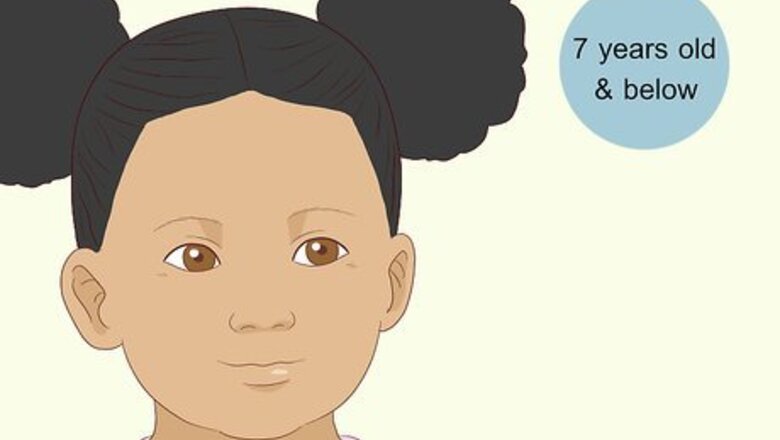
views
Expect some bedwetting with very young children.
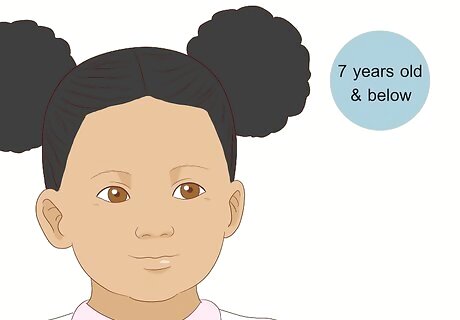
Bedwetting is considered normal up to the age of 7. Most kids will stop wetting the bed after the age of 5, but 15% of children will continue to wet the bed up to the age of 7. As a result, this probably isn’t anything to be seriously worried about—even if does get irritating. Children have smaller bladders when they’re young, and the nerves that let them know they’ve got to urinate aren’t fully developed yet. As they get older, this problem is likely to solve itself. If they’re older than 7 and they’re still wetting the bed, your child has other symptoms associated with the bedwetting, or they start wetting the bed after a few months with no problems, see a doctor. It’s unlikely there’s anything wrong, but it’s worth checking out. It can be frustrating to deal with this, but remember that your child isn’t wetting the bed on purpose. Do your best to be supportive, loving, and encouraging. You’re more likely to see progress if your child feels comfortable with talking to you about the issue.
See your doctor if you’re bed-wetting as an adult.
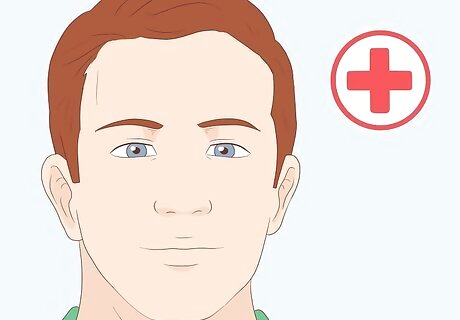
It may not be a big deal, but it’s important to have this checked out. Schedule an appointment with your primary care doctor and let them know what’s going on. There are several medical conditions that can cause bedwetting, and there may be treatments out there. On top of that, bedwetting is occasionally a side effect of certain medications, and they may be able to prescribe you something else. Potential underlying conditions include: Hormones imbalances Muscle spasms and muscular disorders Diabetes Stress and anxiety Kidney issues Urinary tract infections It is very possible that there’s no underlying condition here. Some adults just have active or small bladders, and everyone’s body is different. If nothing is wrong, you may just need to come up with a strategy to deal with the issue.
Decrease fluids a few hours before bed.
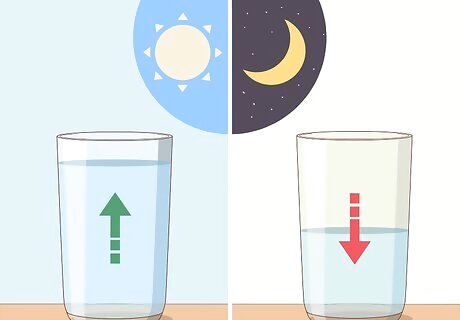
Drink more during the day, and less at night. You don’t want to totally cut fluids off if you or your child is thirsty, but the more hydrated you are during day, the less thirsty they’ll be at night. Children aren’t always great at identifying when they need to urinate, and they may be going to bed with a full bladder without even knowing it, so the less they drink before bed, the better. If you’re wetting the bed, don’t drink anything and empty your bladder before bed. If your child does get thirsty before bed, try giving them less water than you’d normally give them. Even moderately decreasing how much they’re drinking may make a huge difference.
Schedule bathroom breaks throughout the day.
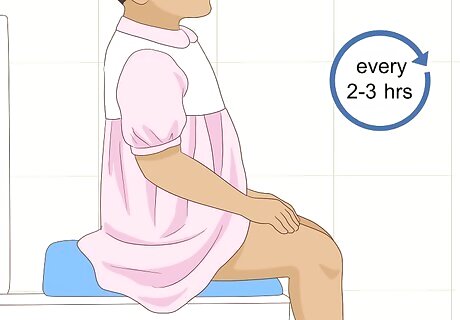
Timed bathroom breaks may “train” your or your child’s bladder. During the day, use the bathroom at scheduled times every 2-3 hours. If you or your child don’t need to go, that’s okay, but at least give it a shot. Time the schedule so that you or your child is using the bathroom right before bedtime. This way, the bladder will get used to the habit of urinating at specific times, which will decrease the odds that you or your child need to go in the middle of the night. Try to make this fun for your child and praise them if they go. You might even consider giving them some kind of reward if they buy-in and give it a shot.
Improve your sleep hygiene.
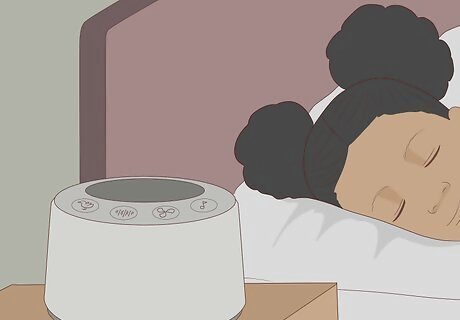
The better you or your child sleeps, the less likely you’ll run into bedwetting. If you or your child doesn’t get enough rest, the quality of the sleep will be disturbed. This will make it less likely you or your child wake up in time to reach the bathroom, or even notice the need to go. Improve sleep hygiene by maintaining a regular bedtime—even on weekends. Keep the room dark, cool, and comfortable. Rely on nightlights and white noise machines as needed if they’re struggling falling asleep. After 12 months, children need 14-12 hours of sleep a day (including naps). Adults typically need 7-9 hours of sleep a day. If your child is having other issues going to sleep or staying asleep, it may be better to address these issues first before focusing on the bedwetting. Your child may stop wetting the bed once they have an easier time going to bed.
Set a new alarm every night for bathroom breaks.
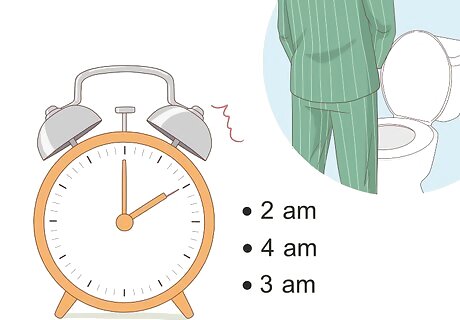
A midnight bathroom break is likely to help out dramatically. However, the trick here is that you need to set the alarm to go off at a different time every night. If you get up at the same exact time every night, your bladder is going to pick up the habit of always emptying out at that time, which can make the problem worse in the long run. One night, get up at 2 am. The next night, get up at 4 am. Keep mixing it up so your bladder doesn’t get used to any one time. This is not a good solution for children. For one, it’s hard for kids to get up in the middle of the night. On top of that, the goal is ultimately for your child to sleep through the night. There’s also not a lot of evidence that waking kids up will help curb the bedwetting.
Strengthen your pelvic floor muscles.
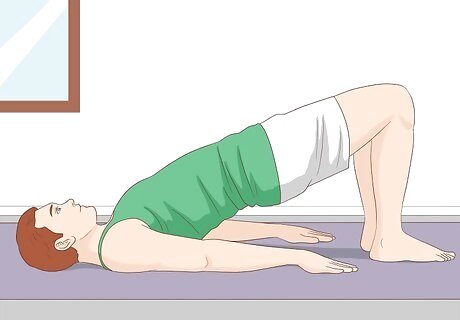
Working on your pelvic floor will make it easier to control your bladder. Your pelvic floor muscles refer to the muscles around your bladder, hips, and groin. Strengthening and improving your flexibility there will help control your bladder if you’re dealing with bedwetting and you’re struggling to control your bladder specifically. Kegels are the gold standard when it comes to pelvic floor training (yes—even if you’re a man). This involves flexing your pelvic floor muscles for a few seconds over and over again. Sit down and imagine that you’re sitting on a marble. Try flexing like you’re trying to lift the marble up in the air. Hold it for 3 seconds before relaxing. Do 3 sets of 10-15 reps throughout the day. This isn’t something children will need to do. Bedwetting is almost never going to be a muscular issue for children.
Take measures to make cleanup easier.
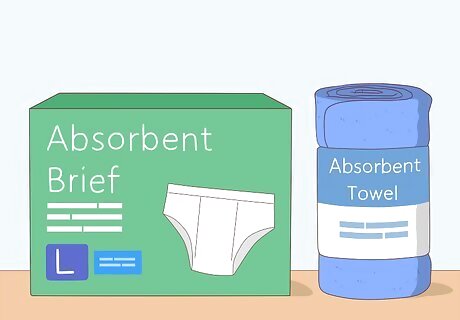
Protecting your sheets and mattress can help in the short-term. While you’re working on fixing the source of the bedwetting, buy some absorbent briefs so that your bed doesn’t get soaked every time you wet the bed. Get a mattress cover if you don’t already have one so that your bed doesn’t get dirty. You can always sleep on top of an absorbent towel if you want to protect your sheets as well. If your child is bedwetting, it may be tempting to put them back in diapers. There’s some evidence that this may actually make the problem worse though, so you’re better off not going this route. You can sleep in adult diapers if you’re wetting the bed and you’re tired of cleaning up every other night. Don’t feel bad about any of this; bedwetting is a fairly common issue—even among adults—and there’s no reason to be embarrassed about it.
Talk to your child to see if you’re missing something.
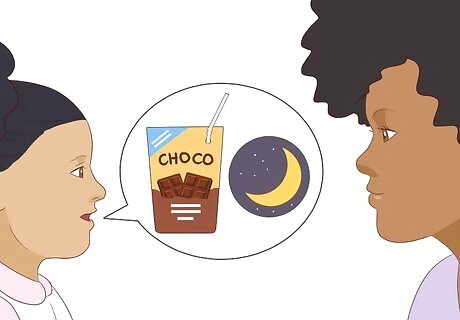
Your child may know something that you don’t. Ask them if they think there’s anything they’re doing that may be contributing to the bedwetting. It’s possible that they’re forgetting to use the bathroom, or sneaking drinks in the middle of the night after you’ve gone to bed. They may not be sleeping particularly well, or struggling to notice that they need to go. Either way, you may learn more about what’s going on, which can help you help them! Be supportive while talking to them about it. If they get the sense that you’re asking because you’re mad at them, they may not be honest with you. Even worse, they may internalize what they’re feeling and blame themselves for wetting the bed. Remind them that it’s not their fault and you aren’t mad at them!
Don’t drink alcohol before bed.
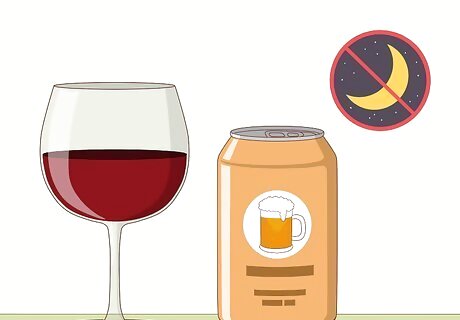
Alcohol suppresses a hormone that can cause you to pee more. Everyone has something called an antidiuretic hormone (ADH), and this hormone basically tells your kidneys to stop making urine when it’s unnecessary. If you wet the bed after drinking, cutting back (or quitting entirely) may put an end to the problem. Caffeine has a similar effect, but unless you’re drinking coffee late at night, cutting back on the caffeine is unlikely to have a huge impact. If you’re only an occasional drinker and you’re only going to bed after one or two glasses of wine, it’s unlikely that this is the root cause of the problem. It’s worth trying, though!
Talk to a doctor about medication and surgery.
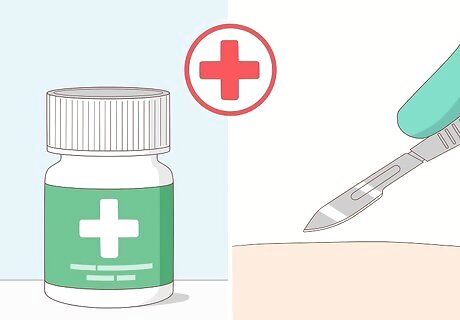
If you can’t resolve the issue, see your doctor again for a follow-up. There are several medications out there that can help you with your bedwetting. In extreme cases, there are even laser treatments and surgical options that may be an option for you. If the problem is difficult enough that it’s seriously interfering with your ability to sleep at night, these larger measures may be worth it! Ask your doctor about Desmopressin, Imipramine, and Darifenacin when you go in for your checkup. These are the most popular options out there for suppressing frequent or unwanted urination.


















Comments
0 comment